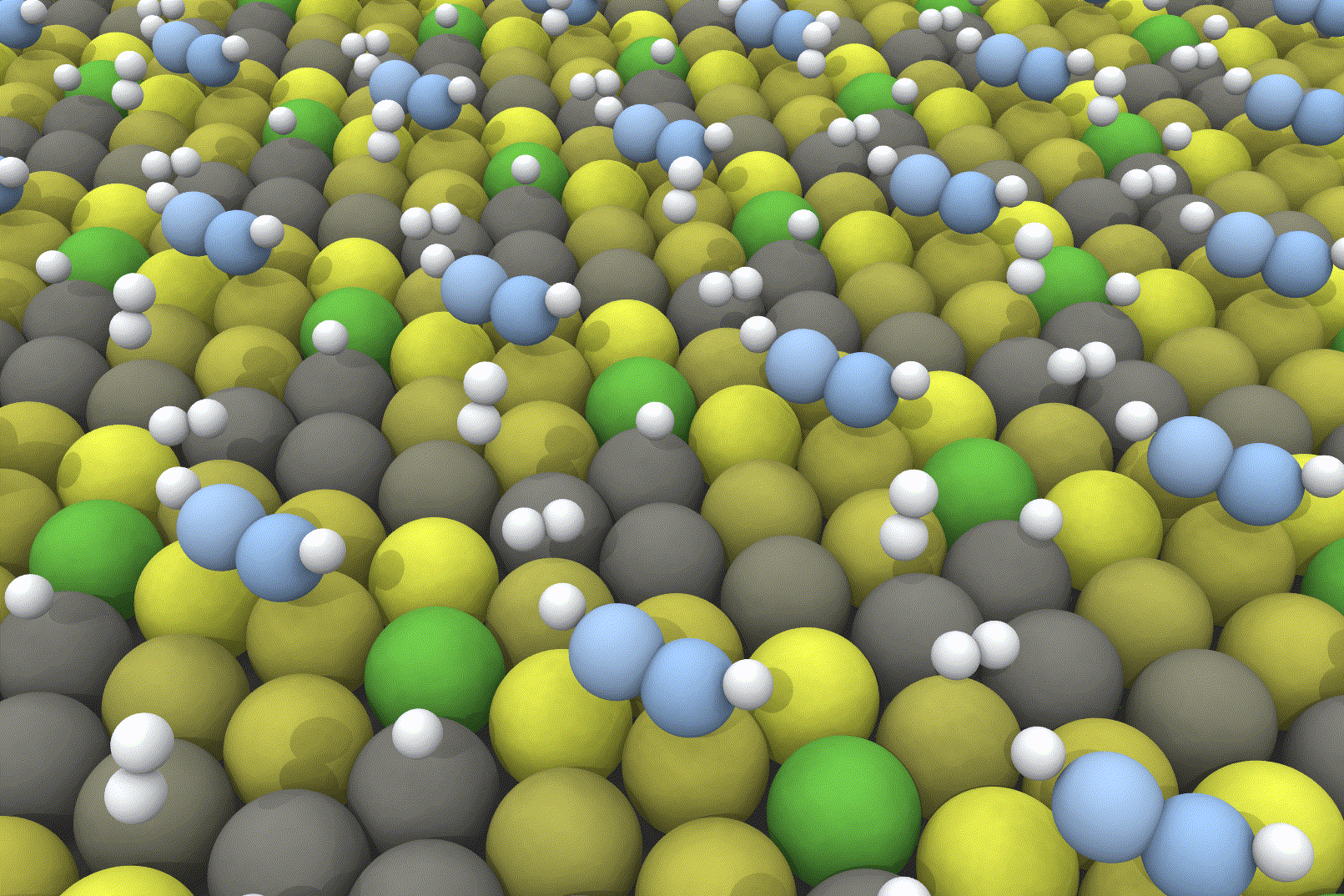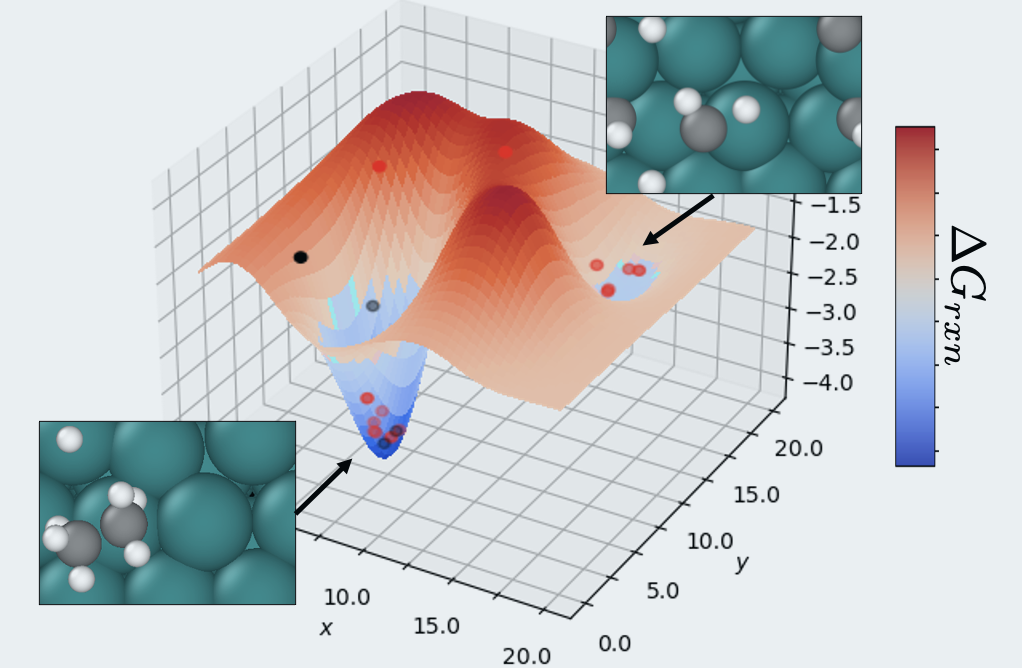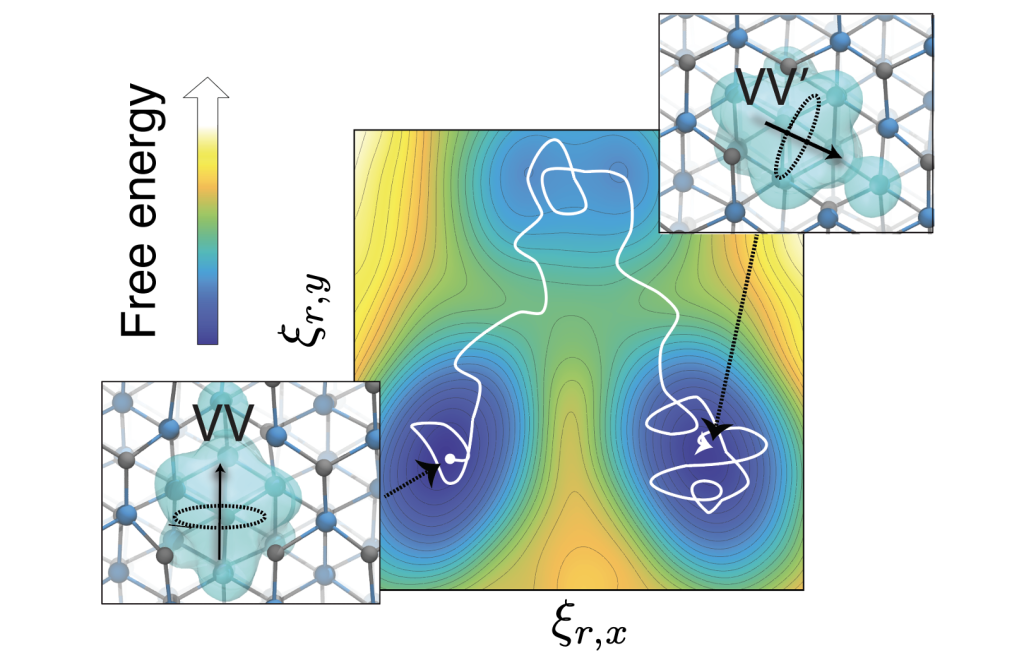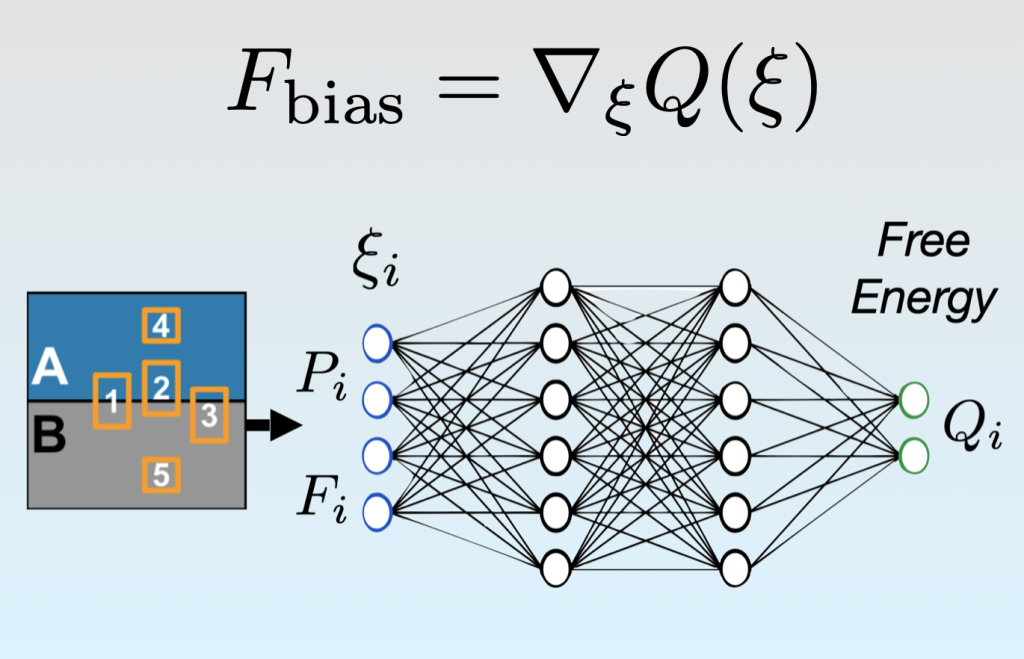
We simulate materials and their interfaces, where atoms and electrons from distinct materials interact and evolve out of equilibrium over time
The Computational Engineering of Materials Interfaces (CeMi) Lee Lab, led by Professor Elizabeth M. Y. Lee, is a computational materials research group at the University of California, Irvine (UCI). We develop and apply advanced modeling tools based on ab initio calculations, machine learning, and phenomenological models to study functional materials. Our research program investigates the formation, breakdown, and transport of matter within materials and at their interfaces, particularly for semiconductor devices and heterogeneous catalysis. The goal is to leverage these fundamental insights to design sustainable materials and their synthesis processes for advanced quantum and energy technologies.
Our home is in the Department of Materials Science and Engineering at UCI, and we are affiliated with the Department of Chemical and Biomolecular Engineering. We are members of the Eddleman Quantum Institute and the Chemical, Applied, and Materials Physics (ChAMP) program. Our group is also a part of the Center for Complex and Active Materials (CCAM), a multi-institute Materials Research Science and Engineering Center (MRSEC) sponsored by National Science Foundation (NSF).
Key Research Areas

Heterogenous Catalysis and Sustainable Process Design
We simulate the dynamics of chemical bonding occurring at solid-liquid and solid-gas interfaces in energy materials to understand the effect of microscopic environment on the reaction mechanism, kinetics, and equilibria

Quantum Defects and Energy Carriers in Semiconductors
We study the creation, diffusion, and annihilation of point defects and energy carriers in semiconductors for applications in renewable energy and quantum information science

Computational Methods in Material Simulations
We develop theoretical and computational tools based on ab initio calculations, phenomenological models, and machine learning methods to capture chemical, electronic, and physical processes in materials at the atomic level
News
- Helical GaSI nanowires as optically active platforms for spin-polarized 1D electronics
 All-inorganic 1D van der Waals helices are promising building blocks…Continue Reading Helical GaSI nanowires as optically active platforms for spin-polarized 1D electronics
All-inorganic 1D van der Waals helices are promising building blocks…Continue Reading Helical GaSI nanowires as optically active platforms for spin-polarized 1D electronics - Persistent metallicity and stable indium vacancies in quasi-1D In₂–δMo₆Te₆ single crystals
 Tellurium-based quasi-one-dimensional (q-1D) Chevrel-type materials host dense Mo–chalcogen chains that…Continue Reading Persistent metallicity and stable indium vacancies in quasi-1D In₂–δMo₆Te₆ single crystals
Tellurium-based quasi-one-dimensional (q-1D) Chevrel-type materials host dense Mo–chalcogen chains that…Continue Reading Persistent metallicity and stable indium vacancies in quasi-1D In₂–δMo₆Te₆ single crystals - Professor Lee Invited to Speak at ACS National Meeting
 Professor Lee presented in the symposium “Molecular-Level Understanding of Structure…Continue Reading Professor Lee Invited to Speak at ACS National Meeting
Professor Lee presented in the symposium “Molecular-Level Understanding of Structure…Continue Reading Professor Lee Invited to Speak at ACS National Meeting